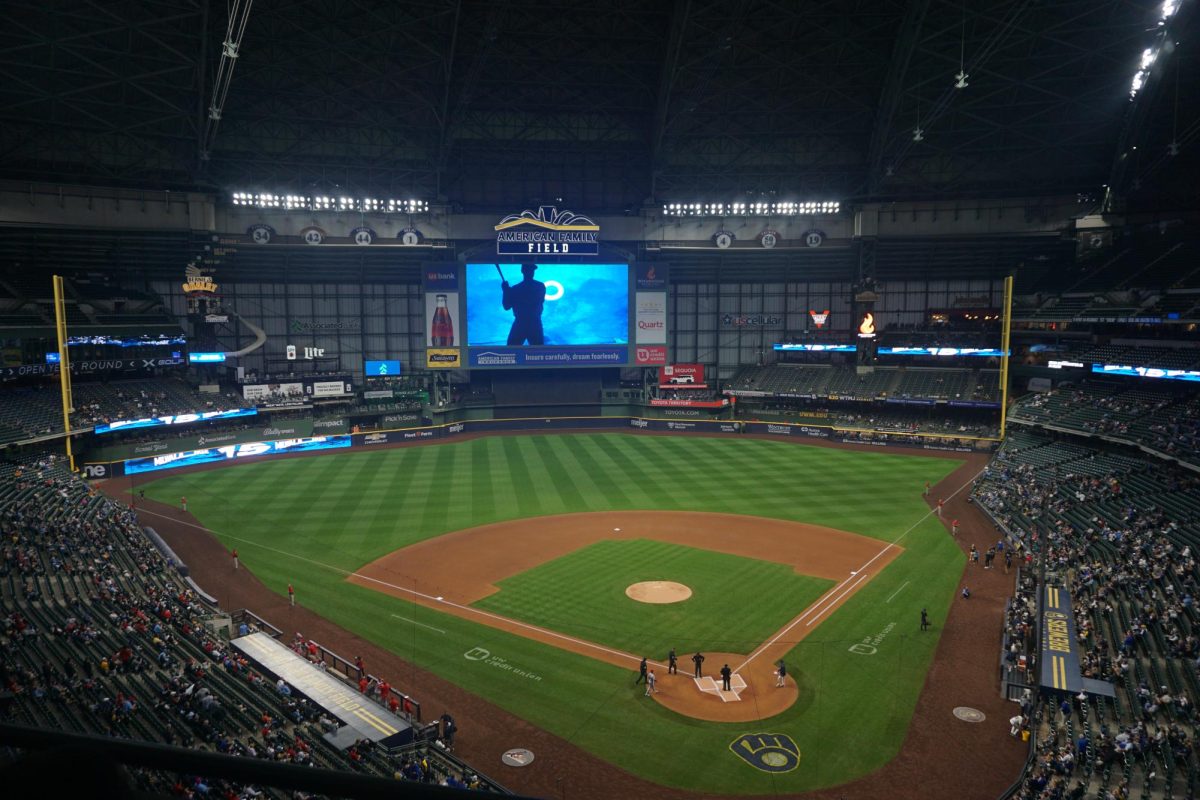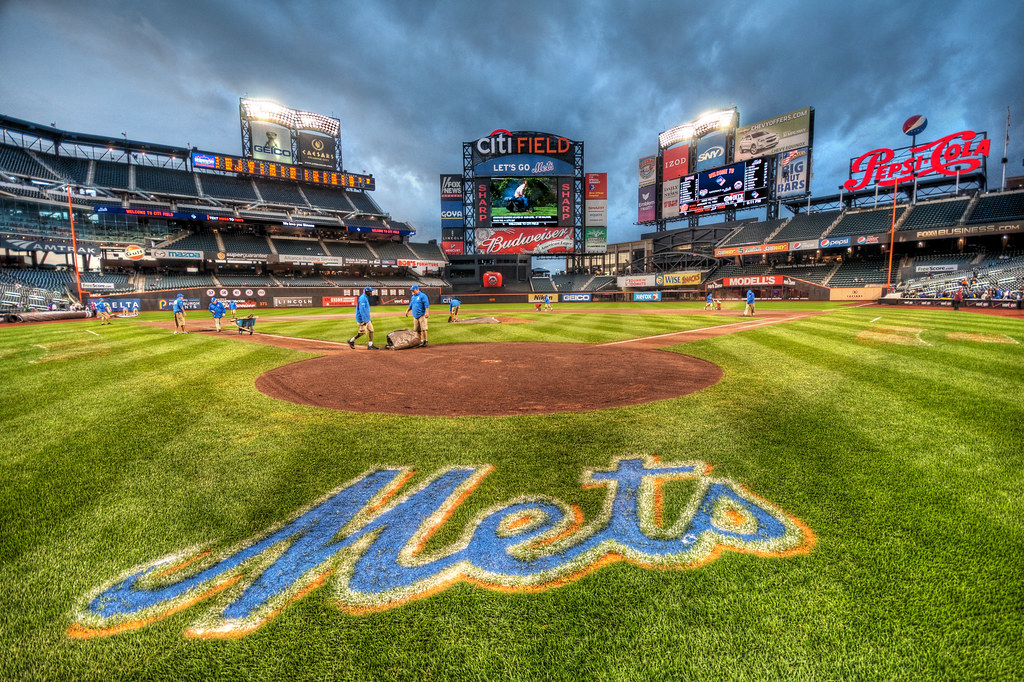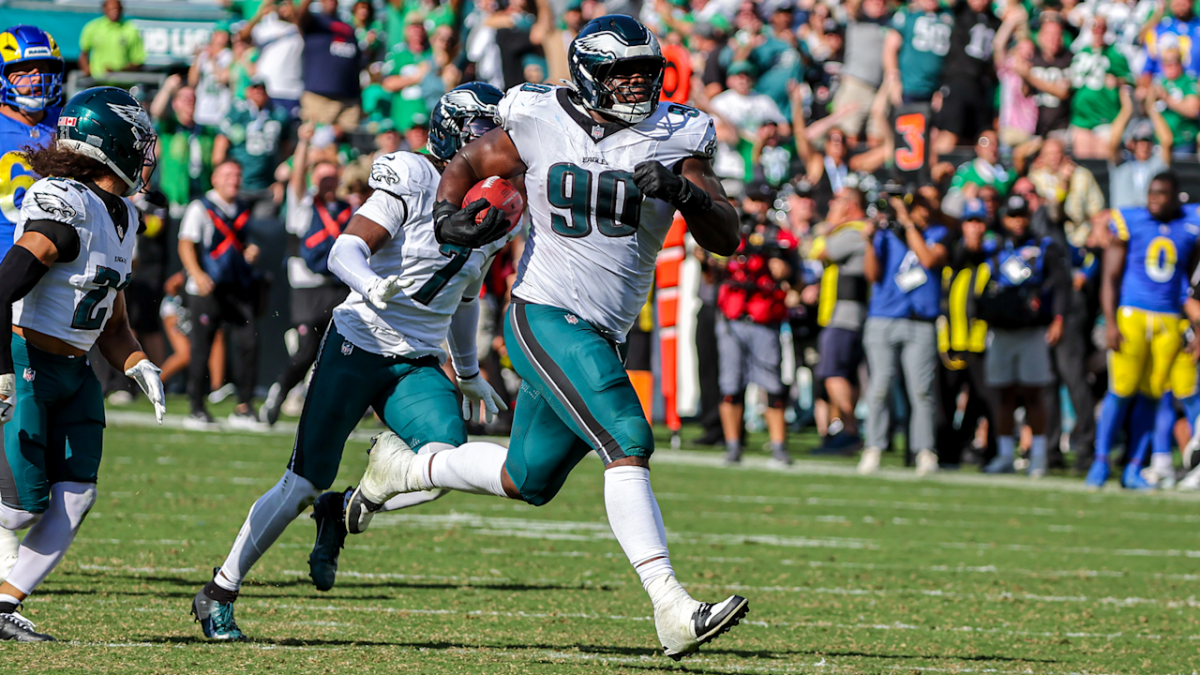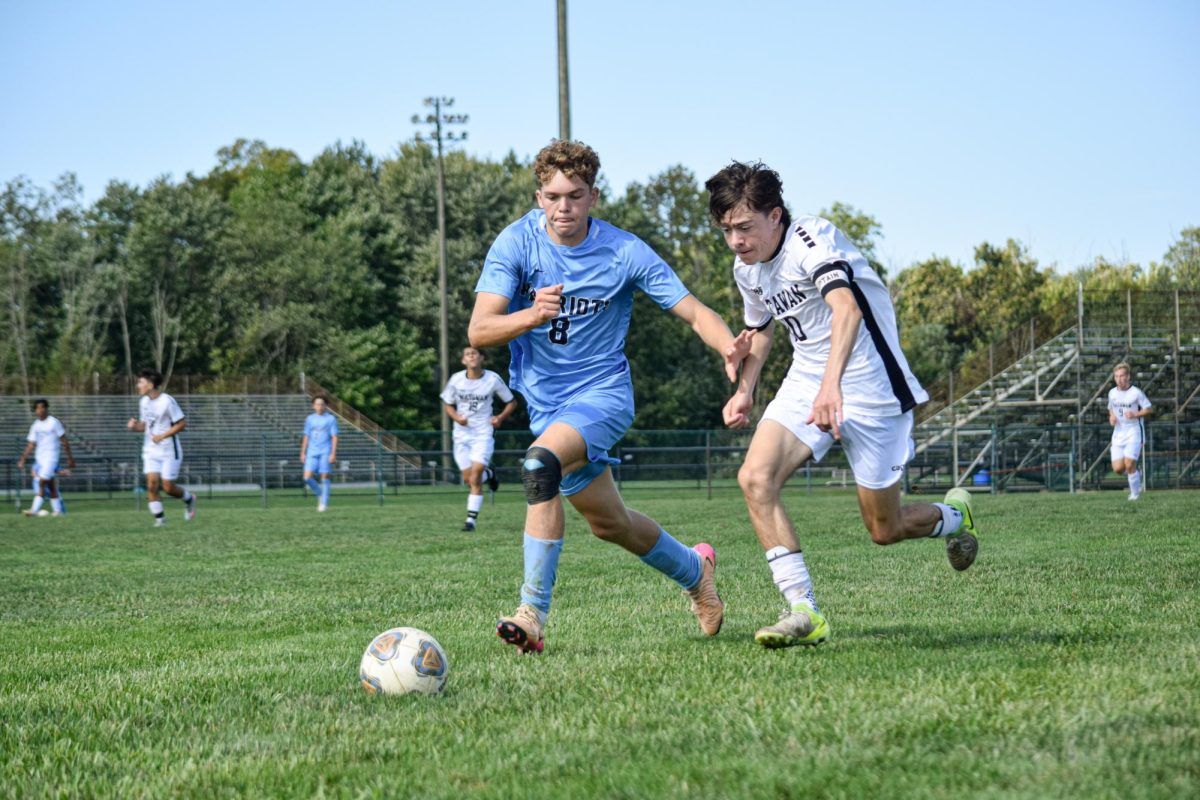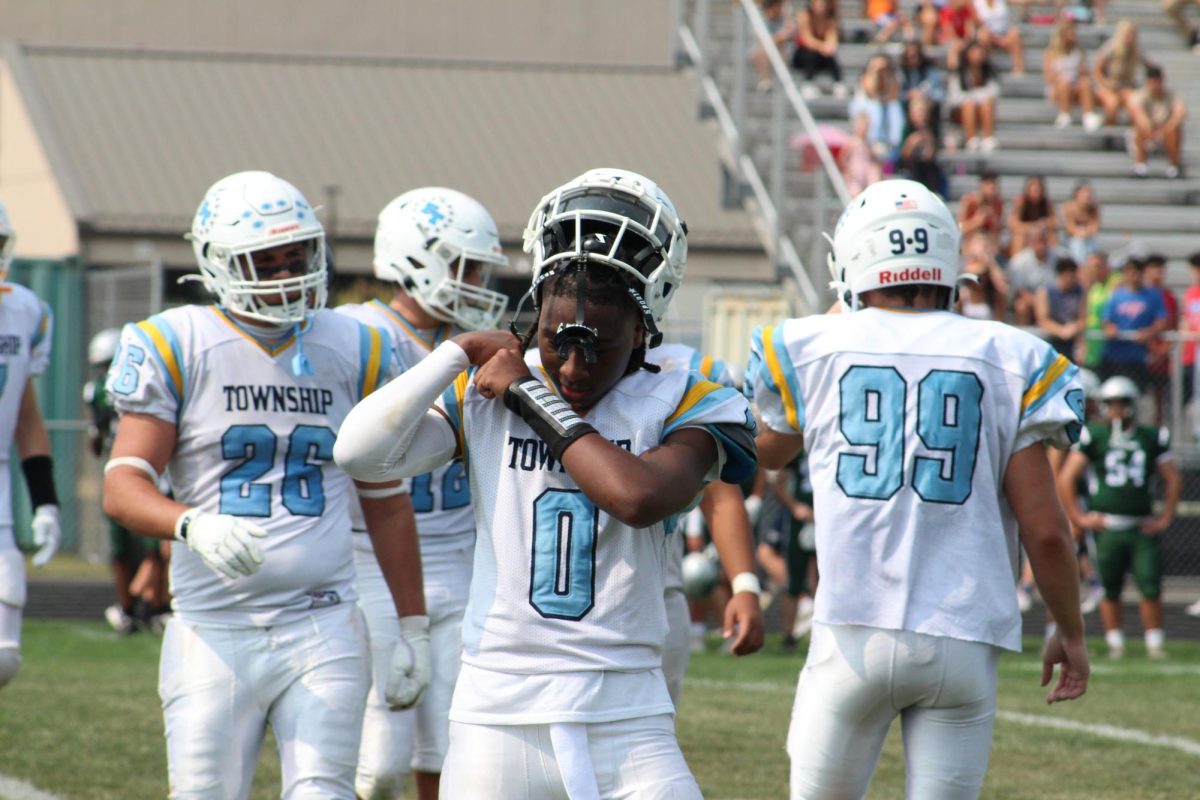2022 World Cup Five Word (or less) Review

January 1, 2023
This World Cup was as unpredictable as people thought, but not in the ways people predicted. Surprise after surprise has taken place throughout this edition of the quadrennial tournament. Many players have broken out and gone on to shine on the biggest stage, whilst others quite simply have not. I looked at every World Cup team and summarized their performance in the World Cup in no more than four words. Here’s how it ended up.
Group Stage exits
Qatar: Worst. Host Nation. Ever
I placed Qatar third in the group in my bracket, thinking they would at least win one game. They were in solid recent form entering the tournament. Coach Felix Sanchez guided Al Marun to an Asian Cup title in 2019 and the CONCACAF Gold Cup semi-finals in 2021. Almoez Ali and Akram Afif were a threatening tandem in both tournaments, and the defense proved solid on both occasions. However, the World Cup could not have gone any worse for Qatar, let alone any host nation.
Qatar lost all of their games, conceded seven goals, scored just once, and was eliminated after their second match. All of these helped Qatar become quite literally the worst hosts in World Cup history, with the worst overall group stage performance and being the first host in World Cup history to be eliminated before the final group match. The only other host to go out in the groups was South Africa, and they were eliminated via goal differential.
Canada: Nice try, eh?
Like Qatar, Canada failed to pick up a win or a draw, but they at least kept things close for the most part. Against Belgium, they dominated, but Belgian goalkeeper Thibaut Courtois was on top of his game that day, saving a penalty and keeping a shutout 1-0 win for his country. Through superstar Alphonso Davies, they scored their first World Cup goal ever, which also happened to be the fastest goal of the 2022 World Cup, to take a lead against Croatia (they then capitulated to a 4-1 loss). And against the other semi-finalist in their group, Morocco, the Canadians generated several chances and held their opponents to zero shots in the second half, but ultimately came up short, losing 2-1.
Canada will be co-host alongside the US and Mexico in 2026. Let’s hope that improvements arrive quickly into the national setup so Canada can finally pick up their first win at a World Cup in less than four years’ time.
Wales: Straight-up trash
We expected the 2016 Euro semi-finalists to be a frustration for England. We expected Gareth Bale to create magic. We expected Dan James and Brennan Johnson to burn defenders with their speed and help their nation score a goal or two from open play. None of that happened at all. Wales, overall, was absolutely dreadful, or “trash,” as some might say.
Against the USA, Wales was bailed out by a careless Walker Zimmerman challenge in the box that turned into a penalty goal for Bale, despite missing several clear-cut chances to score. In the Iran game, Wales was carved apart on defense, and were lucky to not concede until the 8th minute of stoppage time. And, quite simply, they were no match for England. Marcus Rashford’s efforts helped lead England to a 3-0 rout of their neighbors and sent the Dragons home with a whimper. Wales finished on one point because of their draw with the US, but with only one goal scored all tournament. The magic just was not there.
Serbia: Where is the defense?
Serbia was solid in attack for the most part. Aleksandar Mitrovic was as reliable as ever, scoring twice, and Dusan Tadic played the pivotal passes that helped pave the way for other goals. Serbia scored five times, but the defense was as porous as clay soil.
Goalkeeper Vanja Milinkovic-Savic was constantly pelted with opposing shots. Serbia conceded eight goals in three games, but allowed a total of 50 shots, 24 of which were on target, meaning Vanja, brother to midfielder Sergej, had to make 16 saves. Strahinja Pavlovic was solid individually, but the unit overall was so bad that they would have likely stopped Serbia from advancing even if the Serbs scored 16 goals.
Denmark: What happened?
If I had told you that Denmark, after going to the Euro 2020 semi-finals and beating France twice in the Nations League, would finish bottom of their group with one point and only one goal scored, (and that goal being scored by a center back), I would have been severely ridiculed. Now, this is exactly what historians will be saying about this Denmark side in the coming years.
Head coach Kasper Hjulmand had some real talent at his disposal. His defense was solid, with Andreas Christensen being good overall. The overall team performance, however, was well below expectations. Hjulmand made constant changes to his forward line, rotating attackers in and out of the squad, but not giving a single minute to arguably their most talented attacker, Jonas Wind. Joakim Maehle, who played all but 20 minutes of the tournament, was beaten routinely, including on the goal by Australia that ultimately sent them packing. After this cup, there are lots of questions to be answered, but the ultimate one is obviously, “what happened to this Denmark team?”
Costa Rica: Fighting to the end
We all thought Costa Rica would be the laughing stock of their group after a 7-0 drubbing by Spain in the opener. However, Los Ticos had two games left to play, and clearly, they were able to fight off a potential dip in morale caused by their opening blowout loss. They gave both Germany and Japan a run for their money in their next two matches.
Costa Rica improved their performance and the board in their next two games. They shut out Japan 1-0 and threatened Germany for a moment before losing 4-2 on the counter attack. Yeltsin Tejeda picked up a goal and an assist, and defender Juan Pablo Vargas was able to force an own goal. On the other end of the pitch, Keylor Navas became a brick wall. Costa Rica had a strong end to their tournament thanks to their mentality, and they should be proud of that.
Iran: Nerve-racking to the end
Under Carlos Queiroz’s managerial reign, Iran has always posed a threat to other teams, but the results do not always reflect their performances. In 2014, they kept Nigeria scoreless and held Argentina goalless until stoppage time. In 2018, they held Spain to just one goal and nearly beat Portugal. With that said, 2022 was their best World Cup by far.
Sure, they lost 6-2 in their opener, but they still managed two goals. They dominated Wales and eked out a late victory with two very solid goals in stoppage times. Against the US, they generated a few really good chances, especially in the second half, but ultimately fell short. However, they did not go out without causing a lot of drama and giving many Americans heart attacks during the US game.
Saudi Arabia: Surprise, surprise
Of all the teams that were most immediately written off, Saudi Arabia was the one that got written off the most. Being that the squad was composed entirely of players from the Saudi leagues, it was hard to figure out how good this team truly was because their level of competition was the same and it was not highly touted like the top leagues in the West. Clearly, the Saudis are now owed an apology.
Saudi Arabia beat Argentina in their first game, and kept it close against Poland and Mexico. They were constantly threatened on attack and were somewhat solid in defense. Mohamed Al-Owais showed out in between the sticks, with his saves being crucial in defeating Argentina and keeping Mexico from scoring the goals that they needed to go convert. Salem Al-Dawsari’s two goals were both huge. Mohammed Kanno was solid in midfield. The team overall surpassed everybody’s expectations by beating Argentina, so that alone deserves respect.
Ghana: Lots of promise shown
Ghana was the lowest-ranked nation at the World Cup and their squad was the youngest on average at age 24. There are downsides to being so young, mainly a lack of experience. Only two players had previously played at a World Cup, brothers Jordan and Andre Ayew in 2014. On the bright side, there was a lot of bright young talent. Many young players showcased their talents at the World Cup and caused problems for their opponents, especially in the attack.
Ghana had Inaki Williams and Mohamed Kudus as threats on offense; both used blistering speed to burn defenders. Kudus ended up scoring twice whilst Williams nearly scored a late equalizer against Portugal by pulling an attempted Jose Alvarado, (point guard for the New Orleans Pelicans), move. The veterans did contribute as well. Andre Ayew scored a goal and Jordan Ayew provided an assist, whilst also helping to force another goal via a deflected free kick.
Belgium: De Bruyne’s right. Everybody’s washed
After scraping by Canada 1-0 despite being dominated, Belgium midfielder Kevin De Bruyne was asked by a journalist if his team still had a chance to win the World Cup and improve on their third-place finish in 2018. De Bruyne’s response? “No chance, we’re too old.” He went on to cite the aging stars on the team, such as Eden Hazard and Romelu Lukaku in attack and Jan Vertonghen and Toby Alderweireld in defense. The sad part for Belgium fans? KDB, as he is known on English shores, was absolutely spot-on with his assessment.
Goalkeeper Thibaut Courtois, and the entire team, including KDB, underperformed. Belgium scored just once through Michy Batshuayi. Manager Roberto Martinez still opted to pick the regressing old boys over fresh legs, with young forwards like Charles De Ketelaere and Lois Openda sitting on the bench for most of the tournament, whilst defenders Wout Fae, Zeno Debast, and Arthur Theate did not play at all. It was an all-around disaster for Belgium, and Martinez leaving his job was no surprise.
Mexico: Ew.
Coming into this tournament, it had been 44 years since Mexico had missed the knockouts. People were expecting a knockout stage appearance once again from El Tri. Manager Tata Martino, formerly of Atlanta United fame, had some real talent at his disposal. However, this World Cup ultimately proved a massive frustration for Mexican fans, both those in attendance and those watching from home.
Martino went with a more defensive approach against Poland, as his team failed to generate enough scoring opportunities. Martino went even more defensive against Argentina, and that came back to bite him. Once he finally brought a more attacking style, Mexico actually scored goals (i.e. a free kick by Luis Chavez) and generated chances, but did not score enough goals to upend Poland in the goal difference category. Mexico missed the knockouts, and Martino was out of his managerial position just minutes after the end of their 2-1 win over Saudi Arabia.
Tunisia: Toughness personified
Tunisia was going to have a tough time getting out of the group already. They had to play Denmark and France, so many favored them to finish last in the group. But as we saw at this World Cup, Tunisia was no easy opponent, especially when opponents had to face the midfield duo of Koln’s Ellyes Skhiri and, more crucially, Ferencvaros’ Aissa Laidouni.
Laidouni was everywhere, making tackles on one end of the field and making attacking runs at the other. He provided the assist for Tunisia’s lone goal and helped his nation shut out France in their final game. Sure, it ultimately was not enough to get out of the groups, but it still showed that this team was not to be messed with. Shoutout to goalie Aymen Dahmen, by the way. He conceded just one goal in three games, a very solid statistic for a relatively unknown player.
Uruguay: Just not enough goals
With a midfield of Valverde and Bentancur, an attack that now had Darwin Nunez, and a younger face in goal, big things were expected of Uruguay. Many labeled them as dark horses, as their physical style of play was something that made experts believe in their ability to cause trouble. However, Uruguay also had an aging striker duo of Luis Suarez and Edinson Cavani, but aging players were not that big of a weakness for Uruguay, were they?
Maybe they were, because neither Suarez nor Cavani netted a goal. In fact, only one player scored for Uruguay, attacking midfielder Giorgian de Arraescaeta in their game against Ghana. Uruguay failed to score against South Korea and Portugal, and was one goal short of making it to the knockouts on goal differential. It was a horrible way for Suarez and Cavani to bow out of the big stage.
Cameroon: Fireworks detonating, flashes everywhere
Nothing much was expected from Cameroon. The squad had some youngsters and pacey players, but the group of Serbia, Brazil, and Switzerland was thought to be too much for them. They did not make it out of their group, but played above expectations.
The Cameroonians saw some solid play from a handful of players. Devis Epassy was solid in goal after Andre Onana’s fallout with the coaching staff, especially versus Brazil. Vincent Aboubakar had an amazing tournament, with two good goals and a good assist. Jean-Charles Castelletto had two good games in defense, picking up a goal and an assist in the process. Collectively, they gave all of their opponents a rough time and generated good chances throughout their matches.
Ecuador: Enner Valencia carried
I put Qatar in third place in their group, thinking they would be able to perform well because of their home-field advantage. By the end of day one, I looked like a clown. Why? Enner Valencia.
Valencia scored twice in Ecuador’s 2-0 opening-day win (he had a third chalked off for offsides) and then scored the equalizer against the Netherlands. Yes, he did accidentally deflect a free kick right to Kalidou Koulibaly for the goal that knocked Ecuador out of the World Cup, but that does not take away from his three goals scored this tournament. I should shout out the fullbacks, Angelo Preciado and Pervis Estupinan, for creating some of the chances, but without Valencia, Ecuador could have easily finished bottom of the group.
Germany: Inadequacy and sheer disappointment
Germany had a poor World Cup in 2018. However, that team featured veterans, like Jerome Boateng, Mesut Ozil, and Mats Hummels. This squad was much younger and fresher overall. Nico Schlotterbeck, Kai Havertz, David Raum, and a rejuvenated Niklas Sule were supposed to be highlights of a much improved German squad that many predicted would top Group E. And boy, was this prediction wrong.
The defense was completely exposed on multiple instances in each game. Against Japan, goalkeeper Manuel Neuer spilled a cross into the path of Ritsu Doan for one goal and let a second one in at his near post (which is not a good thing, for those who don’t know). The defense was better against Spain, but was calamitous against Costa Rica. It was overall a poor tournament for Manuel Neuer in goal, and the defense was leaky. Jamal Musiala and the midfielders could only do so much, as well as striker Niklas Fullkrug, who scored twice. The Germans only went out on goal differential, but should have been better anyway.
Round of 16 exits
South Korea: Perseverance on full display
South Korea was tipped as heavy underdogs in a group alongside Portugal and Uruguay. After drawing and losing in their first two games, the Taeguk Warriors needed to defeat Portugal, (without their suspended coach Paulo Bento), to have any chance of making it to the Round of 16. They went down 1-0 inside five minutes, but they fought back and won 2-1. Thankfully, Uruguay did not score enough goals, so the Koreans went on to the Round of 16 on goals scored before losing to Brazil.
Hwang Hee-Chan had arguably the best tournament of the big-name attackers in the team, scoring the winning goal against Portugal, with Son Heung Min delivering one of the best passes of the tournament to assist him. Cho Gue Sung scored twice against Ghana, which was crucial in the end for Korea’s goal differential. Kim Jin Su and Kang In Lee performed well in the group stages also. South Korea should be very proud of their display in Qatar, because of the mentality they showed, which was very much the right one.
Poland: Szczęsny, Lord and Savior
Poland was quite dreadful throughout the World Cup, making the knockouts off of one decent performance against Saudi Arabia, a 2-0 win which saw a goal off an error at the back by the Saudis. Robert Lewandowski scored that goal, and a penalty against France at the end of their Round of 16 match, but he also missed a penalty against Mexico. Everybody else was relatively disappointing. But one player was outstanding: goalie Wojciech Szczesny.
In a group that came down to goal differential for second place, Szczęsny was a crucial commodity for the Poles. He made four saves against Mexico, four saves (including a PK save) against Saudi Arabia, and eight saves against Argentina, including another penalty save, which helped Poland maintain a zero-goal differential to keep them ahead of Mexico. France ultimately proved too much for Szczesny, who made five saves against Les Bleus, but he still goes down as one of the best goalkeepers of the tournament just because of how brilliant he was in the groups.
USA: Just over the line
The United States was back for the first time since 2014. They had a very talented young squad led by Christian Pulisic, but entered the World Cup in shambolic form, with poor showings against Saudi Arabia and Japan. However, the World Cup they had was a bit better. All the games were closely fought in the groups, and the US made the knockout stage behind England, courtesy of a 1-0 win over Iran.
Christian Pulisic scored that match-winner, and assisted the other two goals that were scored in the tournament. The midfield of McKennie, Musah, and Adams showed huge flashes of its potential. Brendan Aaronson played decently in limited game time. Matt Turner was solid in goal. And the fullback duo of Antonee Robinson and Sergino Dest was admirably solid. This team is going to take huge strides over the next few years, and 2026 might be the year that the United States goes on a deep run.
Spain: All style, no substance
It was well known going into the World Cup that Spain’s style of play under Luis Enrique was one that saw them hog possession of the ball, passing around for a long, long time, patiently waiting for holes to open up in the opposing defense. However, critics of these tactics claimed that Spain would struggle to find goals. I thought so also, only because Spain took only one out-and-out striker, and it was not someone on a super hot streak like Borja Iglesias, Rodrigo Moreno, Joselu, or Iago Aspas, but Alvaro Morata, notorious for his inconsistent finishing. I was kind of wrong about Morata, but Spain ultimately saw their ball-hogging bite them back hard, especially against rock-solid Moroccan resistance.
Walid Regragui’s men stayed in their defensive shape, not allowing Spain to get any good shots off. La Roja only had one shot on target despite having 77% possession, and ultimately missed all of their penalties in their Round of 16 defeat. It is clear that Costa Rica simply could not find an answer against Spain, because every other team Spain faced managed to neutralize their ball-hogging prowess.
Switzerland: Don’t count them out.
I, like a few others, expected a lot out of Serbia and not a lot out of Switzerland. And I, like a few others, regret overlooking the fact that Switzerland had been in the knockouts of the World Cup in three of their previous four appearances as well as the quarter-finals of the most recent European championship (In said European Championship, they beat France on penalties and nearly did the same to Spain). Serbia had a high-powered squad with players in good form going into the tournament, but they exited in the groups in the last World Cup and had not been in the Euros ever since their split from Montenegro. Ultimately, I learned a huge lesson from this World Cup: don’t count out Switzerland.
They may have been battered 6-1 by Portugal, but Switzerland still had a solid World Cup. Breel Embolo had a couple of good performances as striker, scoring against Cameroon and Switzerland. The defense managed to hold Brazil to a single goal. Yann Sommer showed out in between the sticks once again. Silvan Widmer was an unsung hero at right-back. And Ruben Vargas provided the backheel assist to the winning goal that sent Switzerland through to the knockout stage. Expect Switzerland to be a bit better in 2026, when North America hosts the World Cup.
Australia: Crikey, what a run!
There were many people who counted out Australia. The squad, made mostly of players in the Australian A-League and the Scottish Premiership, was not expected to be able to keep up with Denmark or cause any chaos at all. However, by the end of the group stage, Australia was second in the group, behind only France, and they played it close against Argentina in the Round of 16. A great run for coach Graham Arnold and the crew overall. Credit, of course, goes to the players, also.
Harry Souttar and Kye Rowles proved a formidable defensive partnership. Matt and Craig Goodwin had good World Cups as well, being threats down the wing and both netting goals, whilst Goodwin forced an own goal against Argentina. Aziz Behich and Mitchell Duke also put in good shifts. Expect players like Souttar and Rowles to make major strides in the next year or so.
Senegal: Oh, what could have been…
This was supposed to be the World Cup where Senegal would go on a deep run, but an injury to Sadio Mane cast a ton of doubt on their chances. However, considering that the greatest player in the nation’s history was not available, Senegal did quite well, finishing second in the group before losing to England in the Round of 16.
Edouard Mendy had a shaky World Cup, but he did make some crucial saves against Qatar to keep their knockout bid alive. Ismaila Sarr and Boulaye Dia had decent World Cups as well. Youssouf Sabaly performed consistently at right-back, whilst Ismail Jakobs made some important plays in his debut World Cup. Kalidou Koulibaly, the captain of this team, scored the goal that sent Senegal through, which was his first international goal. Sadly, England clobbered them 3-0 in the second stage, putting an end to what could have been a decent quarterfinal run for Senegal.
Japan: Moriyasu’s 200 IQ plays
Japan was considered an underdog in what was seemingly a group of death, being alongside Germany and Spain. The team had talent, but was coached by some unknown manager named Hajime Moriyasu, and they found themselves down 1-0 against Germany. Coach Mariyasu made a bunch of changes at halftime, and by the end of the tournament, basically showed himself to be one of the most intelligent managers in football.
By bringing on Ritsu Doan, Kaoru Mitoma, and Takuma Asano, Japan was able to put Germany to the sword, beating the multi-time world champions 2-1. Against Spain, Doan and Mitoma once again came off the bench and made impacts, helping Japan knock off Spain and top the group they were tipped to finish third in. They may have suffered a heartbreaking loss to Croatia in the Round of 16, but it was by far Japan’s best World Cup. The quarterfinals may be the next step up for Japan.
Quarterfinal exits
Portugal: Ronaldo’s star slowly fades
Cristiano Ronaldo entered this World Cup in need of a hot streak. His second stint at Manchester United had just come to a tumultuous end, as he criticized their manager, Erik Ten Hag, in a scathing public interview. He entered the World Cup having lost his place in the United starting eleven, but surely Fernando Santos would not do the same, right?
He did. An outburst after being subbed off led Santos to bench Ronaldo in favor of Goncalo Ramos, who scored an immediate hat trick in his debut. Ronaldo came off the bench against Morocco in the quarter-finals, but missed a huge chance at the end. He missed several sitters against Ghana and South Korea, and Portugal arguably looked better without him starting. Ronaldo may finally be aging out of his best form, which is a sad sight to football fans around the globe, but it is inevitable.
Brazil: Celebrations cut short
Brazil had big expectations going into the World Cup. Looking to improve on a quarterfinal exit in 2018, manager Tite brought in the likes of Eder Militao, Vinicius Jr, and Rodrygo into his squad, looking to pick apart opposing defenses. Vinicius had a good World Cup, and so did Richarlison. Neymar scored twice in the knockout stages after suffering an ankle injury. However, Brazil went out in the quarterfinals again.
After taking an extra-time lead through Neymar, Brazil capitulated in the 117th minute and conceded a late goal, and went on to lose the penalty shootout versus Croatia, with Marquinhos striking the post on a must-make penalty. Tite is now out as manager, and Neymar may not be back for 2026. Call this a bridge of chapters in Brazil’s storied history.
England: It’s not coming home
England have not won a major international tournament since the 1966 World Cup. After the Three Lions put six past Iran and three past Wales and Senegal each, England fans began to believe that it was finally coming home, despite forgetting that England has the tendency to choke in the biggest stages. However, they did not expect Harry Kane to be the player who choked.
Kane scored one penalty, but missed the crucial second that would have tied England versus France. Now, England will have to try again in Euro 2024, and the 2026 World Cup under a manager who has grown increasingly unpopular with the English fans. Let’s hope that England finally get some sort of trophy soon.
Netherlands: The usual
The Dutch have seen constant heartbreak during previous World Cups. They finished runners-up twice in the 70s, once again in 2010, and finished as semi-finalists in two other World Cups, 1998 and 2014. Louis Van Gaal was coach of the 2014 side that finished third, and returned for 2022, looking to improve on that finish. What he did in the quarterfinals against Argentina was the smartest substitution of the World Cup, and would have gone down in all-time lore had they won the Cup.
Seeing that Argentina was doing poorly at dealing with headers, Van Gaal brought on Luuk De Jong and Wout Weghorst. Both were tall strikers that had physical advantages and heading ability. Weghorst went on to score twice, including a brilliantly worked free kick in second-half stoppage time. However, their momentum was curbed by extra time, and the Dutch fell on penalties. Andries Noppert and Cody Gakpo saw their brilliant World Cups come to an end in heartbreaking fashion, but they still entertained fans and gave them something to remember.
Top four
Morocco: Greatest African team ever??
Prior to 2022, only three African teams made the quarterfinals of a World Cup. Cameroon got there in 1990 on the back of four goals by Roger Milla before falling to England. Senegal did it in 2002, beating France in the groups before a defeat to Turkey in the quarters. Ghana came closest to the semis, losing to Uruguay on penalties in an infamous manner. After this, the semis seemed out of reach for African nations. Morocco broke that streak.
Off the back of a spectacular defense and the dynamic midfield of Azzedine Ounahi and Sofyan Amrabat, Morocco advanced to not just the quarter-finals, but the semis. They scored some brilliant goals in the group stages and blanked Spain and Portugal on their way to a semi-final with France. Despite a 2-0 loss, Morocco still showed tremendous flashes, and again in the third-place game, where they narrowly lost to Croatia 2-1. Still, they won the hearts of so many fans around the world, including mine. I am grateful that I got to see Morocco make history the way they did.
Croatia: Almost did it again
Nobody expected Croatia to make the final in 2018, but they did, thanks to great knockout stage football. Even with an improved team in 2022, no one expected them to go to the semi-finals. Yet here we are, after Croatia finished in the top three at the World Cup for the third time in their history as an independent nation. The 2022 tournament was quite the way for Luka Modric to bow out.
Modric was excellent in his old age, but other players deserve shoutouts alongside their captain. Dominik Livakovic was the dictionary definition of a wall between the sticks, and was almost supernatural during the penalty shootouts. Josko Gvardiol and Josip Juranovic were standouts in defense. Mateo Kovacic and Marcelo Brozovic were solid. Ivan Perisic was a constant threat down the left. Mislav Orsic made a huge impact off the bench in Croatia’s run. The Croatian golden generation did not disappoint at all, with a silver and bronze medal at the World Cup across eight years to show for it.
France: Almost did it again
France entered the World Cup in turmoil. They had already lost Paul Pogba and N’Golo Kante, Presnel Kimpembe and Christopher Nkunku got injured in training, followed by Karim Benzema the day before the World Cup started. To make matters worse, Lucas Hernandez tore his ACL nine minutes into France’s opener, seconds before Australia scored. It was thought that the World Cup champions’ curse was playing out. Were France set to follow Italy, Spain, Germany, and their 2002 predecessors in going out in the group stage?
No. Not only that, they made the final again, the first defending champions to do so since Argentina in 1990. Kylian Mbappe got even better, scoring eight goals and assisting twice, including a hat-trick in the World Cup final. Antoine Griezmann dropped into midfield and created more chances than anyone else at the World Cup. The defense was just fine, with Theo Hernandez filling in for his brother and shining. The midfield was decent as well, but was outplayed in the final.
Argentina: A true fairytale ending
This was Lionel Messi’s last World Cup. He had faced repeated heartbreak in this tournament under multiple different coaches. This squad was supposedly the best squad Argentina had ever put together, but a 2-1 loss to Saudi Arabia was a bad sign of things to come, or so people thought.
The whole team stepped up, and so did coach Lionel Scaloni, who made the decisions to play Julian Alvarez, Alexis Mac Allister, and Enzo Fernandez together, which turned out to be genius. Messi finally had the adequate support he needed and the midfield and defensive cover the team needed. Emi Martinez showed out in penalty shootouts, including in the final. The defense was reckless but still solid enough in the end. Thanks to great attacking displays from Messi and others, Argentina pulled through, finally winning Messi the trophy he so richly deserved and so desperately needed to complete his list of accomplishments, thus cementing his GOAT status for generations to come.
This World Cup was going to need to be entertaining to make up for all the controversy in its lead-up. Luckily, the 2022 edition of the tournament was the most entertaining and thrilling World Cup in history. There was drama in almost every game, especially in the knockout stages. When drama seemed to lack, there were brilliantly worked goals and great plays made. In the end, the final was the most thrilling ever, with Lionel Messi adding the missing piece to a puzzle whose solution would show a massive trophy cabinet of club and individual accolades, now with a World Cup trophy.












